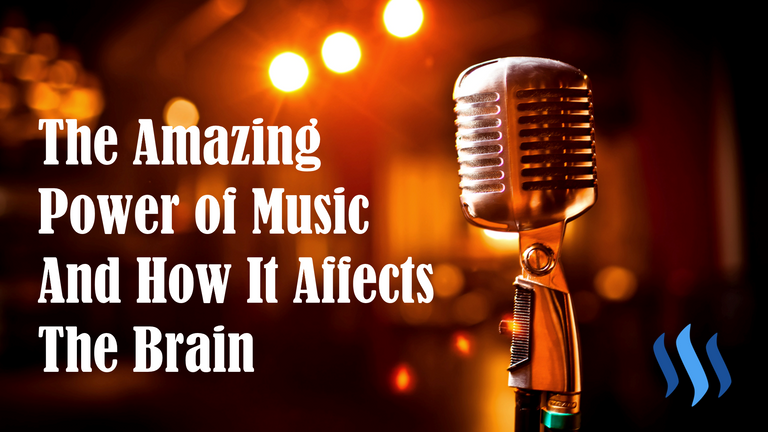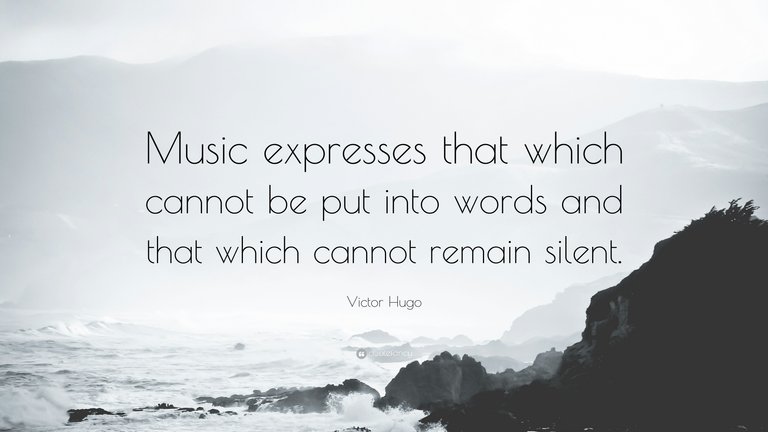
Music plays such a big and influential role in many peoples lives, including mine. According to a study in 2012 by the world leading music equipment manufacturer Audio-Technica, the average person from the United Kingdom spends around 13 years of their life listening to music. With such a large portion of our lives spent listening to music, just how does it affect our brains and what are the benefits?
Many past research studies have found that listening to music has vast amounts of positive benefits, ranging from helping to minimise and reduce the negative effects of anxiety, depression and even blood pressure. It has even been found to help improve people's quality of sleep, cognitive functions, rate of learning and even concentration.

Source: Buffer Blog
Listening to music activates many different parts of the brain and as a result, it effectively gives the brain a full workout, and this helps to reduce the effects of brain aging. While listening to music research using brain imaging technology has discovered that the motor region processes rhythm, the auditory areas process the sound and the limbic regions are activated which are associated with emotions.
What are the main ways music affects the brain?
1 - Emotion
When listening to music we often find that if we are in a good mood and listen to happy, upbeat music it can increase and emphasise our own positive emotions. This happens because listening to music produces a physical reaction within our bodies, and causes the release of the neurotransmitter Dopamine. This chemical has been coined the 'reward drug' by popular science and is responsible for making us feel pleasure, explaining why music can change or increase our mood making us feel happy and positive.
Music has also been proven to help us bond and connect with others, this has never been more apparent in the connection between mother and newborn baby. Singing lullaby's to children causes the release of Oxytocin, also known as the cuddle hormone. This physical reaction helps in producing the strong emotional bond between baby and parent, making them feel connected to one another.
Music has even been used as a form of therapy to treat individuals or groups struggling with emotional or cognitive issues. According to the Music Therapy Association of British Columbia music can be used to help treat people suffering from a vast range of serious cognitive disorders ranging from brain injury and Schizophrenia to those suffering from substance abuse issues. This is because music is so powerful it can even influence our emotions affecting our subconscious.
2 - Learning and Memory
Unfortunately, due to restrictions in funding and budget cuts many schools and educations systems have had to drop music programmes. Many researchers have deemed this to be a counter productive and short-sighted move as it has been proven that music has the ability to positively influence learning.
Northwestern University researchers have compiled research undertaken all over the world about music and learning and the consensus of results have found that music helps to aid and improves many areas such as verbal language, memory, attention, and even vocal emotion.
Much of the research focuses on music's ability to improve the brain's capability to change and adapt over the course of a person's life, the scientific term for this is known as neuroplasticity. Nina Kraus a leading author of Nature Perspective describes how music can not only enhance neuroplasticity, but can also help the nervous system to develop a stable scaffolding of meaningful patterns that are essential for learning.
As a result of this music has been found from research to improve children's language development, improve test scores, help with spatial intelligence and even increase IQ by improving logic and brain connectivity!
Learning through song itself has been a proven method of learning and has been used in education for a very long time. I myself cannot say the alphabet without singing it the way we learned way back when in school!
3 - Attention
I myself, and many others find that listening to music helps me to concentrate while I am performing tasks such as studying, writing or even reading a large passage of text. But, does it really help us to concentrate, or is it an illusion?
Our brains have 2 different attention systems. The first being our conscious attention, which we direct ourselves on what we aiming to focus on such as reading or writing. Our second unconscious attention subconsciously shifts towards what our senses pick up around us that it thinks might be significant or of importance to us, this attention is much simpler than our conscious attention and is linked to our emotional reasoning. A great example of our unconscious attention in action is when we hear a noise at night and our attention is drawn to it before we even have time to process what it is.
Music helps us to concentrate by focusing our unconscious attention by providing it with consistent non-invasive noise which stops us being distracted by other sounds. When our conscious attention is being forced to focus for prolonged periods of time our unconscious attention picks up on more and more invasive noise, drawing our attention away from the task at hand, therefore music really does help us to concentrate and keep our attention focused!
I hope you enjoyed learning about the true power and importance of music. Let me know what you think down in the comments.

Back Soon
If you like this post you might like my others!
Well, now you know! - #5 What are the Northern Lights and what causes the phenomenon?
Back Soon
Will






Hello @williamdeamer
This story made it to the ღ #steempearls of @tabea . Check it out at https://steemit.com/steempearls/@tabea/steempearls-15
Amazing blogpost! Music is another language - the quote at the end is so beautiful and nails it to the point. Yes, I am completely convinced about all the profits of music. ღ
Followed you and it will be mentioned in my next #steempearls
Hi Tabea, thank you for engaging with my post I really appreciate it, and thank you for planning to include this post in your next #steempearls!
I spent a lot of time researching and writing this blog post and it really means a lot to me that you thought it was good and want to share it with others.
Thanks again,
Will :)
Great post, you articulate the importance and power of music very well! Music is a beautiful and innately human thing, I cant imagine life without it. Looking forward to your future posts, dropped you a follow!

Hi, thanks a lot for your kind words and the follow! Music truly is amazing :)
No worries man!